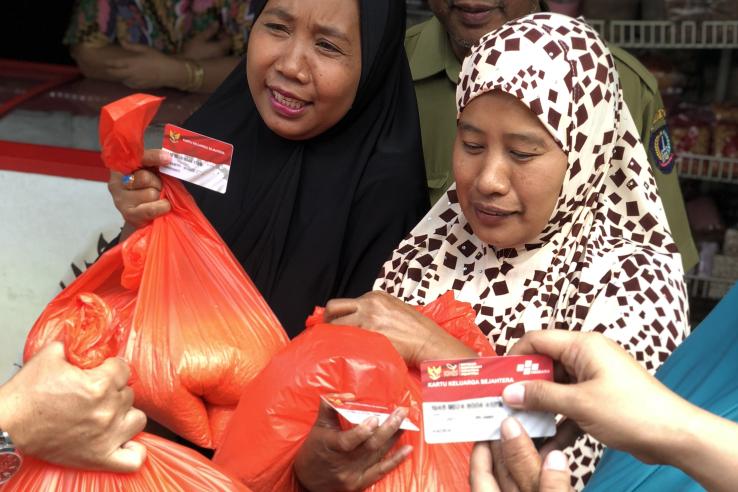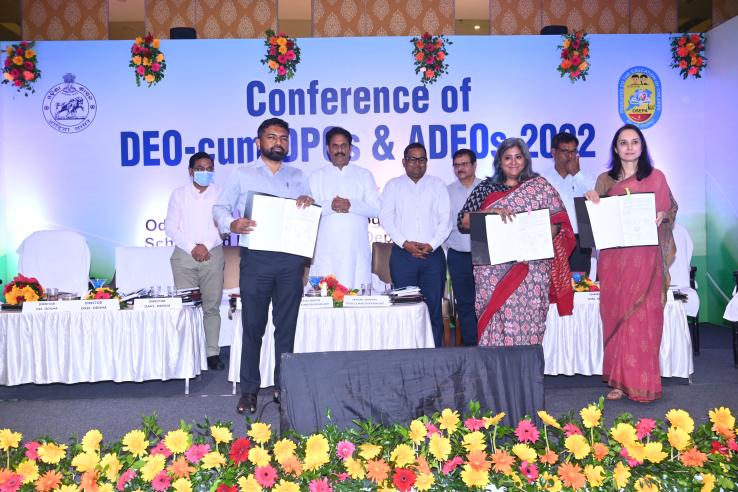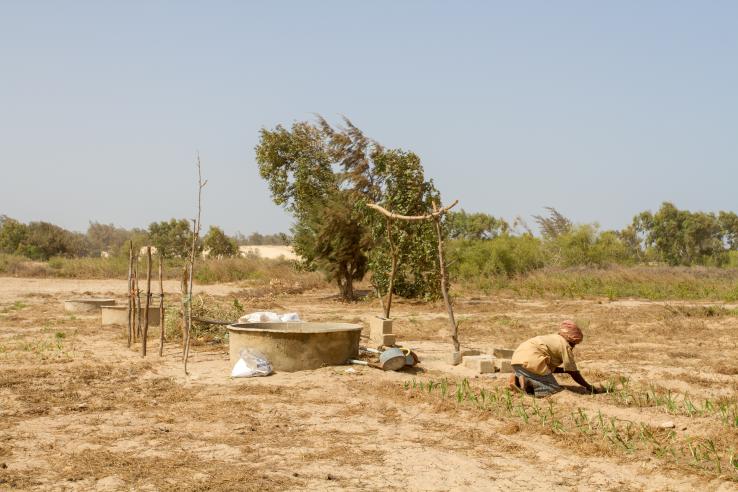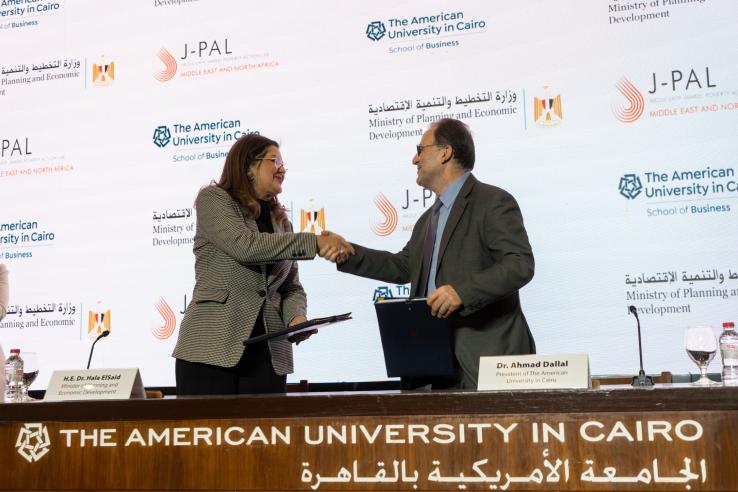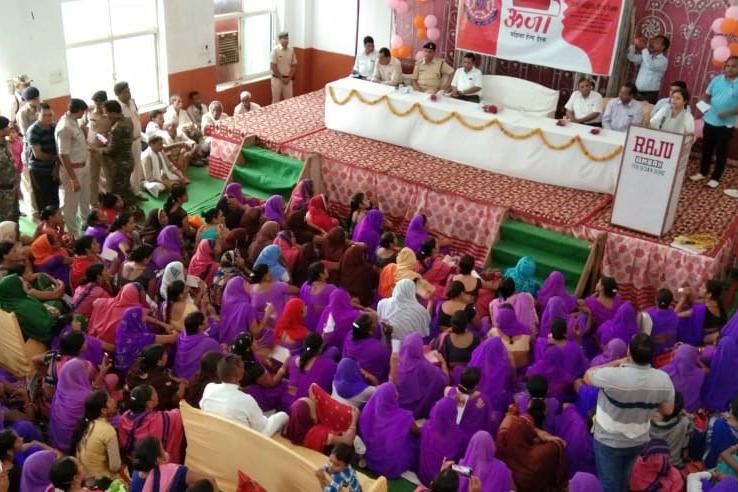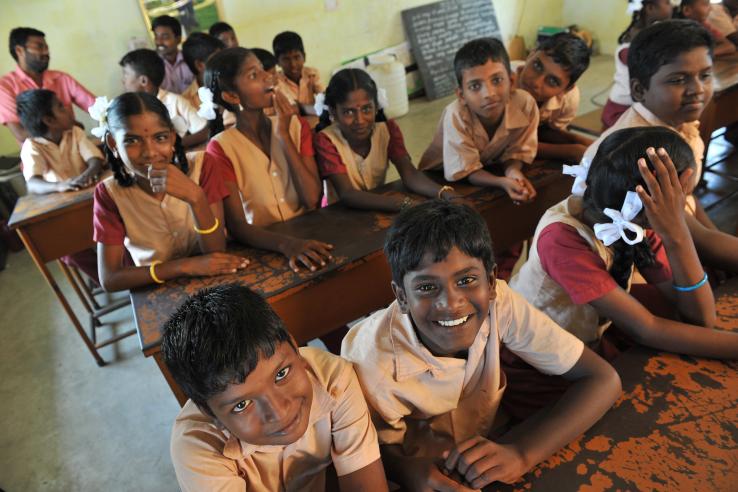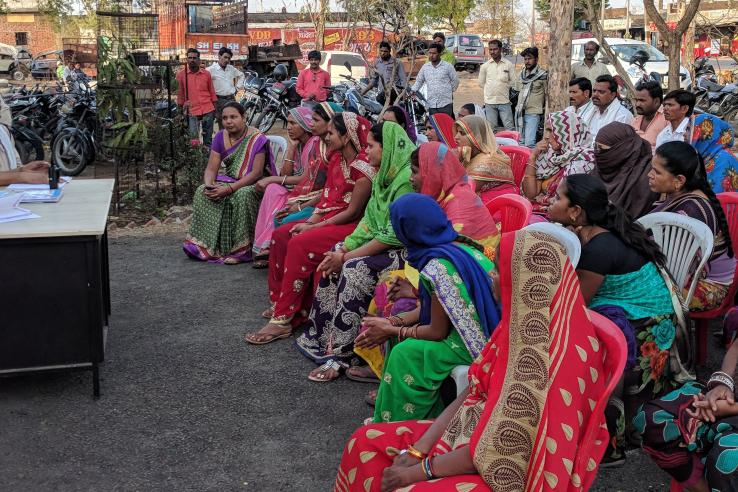Displaying 3886 - 3900 of 8489
Update
J-PAL Updates
The Abdul Latif Jameel Poverty Action Lab Middle East and North Africa at the American University in Cairo announced the first cohort of the MENA Scholars Fellowship following a highly competitive application process after the fellowship’s launch in November 2022. The MENA Scholars Fellowship will...
Update
J-PAL Updates
Universidad del Valle de Guatemala (UVG) and the Abdul Latif Jameel Poverty Action Lab announced their partnership to promote the use and generation of evidence for the design of public policies and social programs in Guatemala.
Update
J-PAL Updates
Cambridge, MA—The Abdul Latif Jameel Poverty Action Lab (J-PAL) at MIT today announced the new Science for Progress Initiative (SfPI), designed to catalyze scientific research on the scientific process. Its purpose is to produce rigorous, quantitative evidence from randomized evaluations on the most...
Update
J-PAL Updates
As state and local leaders leverage federal relief funding to invest in their communities, a new program will support these governments in using data, evaluation, and evidence to advance effective and equitable government programming for generations to come.
Update
J-PAL Updates
In August, we announced a significant expansion of our efforts to forge evidence-to-policy partnerships with innovative-minded governments seeking to use rigorous research to inform their social policies and programs.
Update
J-PAL Updates
The Government of Odisha’s Department of School and Mass Education today announced its partnership with Breakthrough and the Abdul Latif Jameel Poverty Action Lab (J-PAL) South Asia to integrate a gender equity curriculum into the syllabus for students across government schools in the state.
Update
J-PAL Updates
The Government of Andhra Pradesh today announced its partnership with the Abdul Latif Jameel Poverty Action Lab (J-PAL) South Asia to maximise the impact of its anti-poverty programs through the use of a strategic, evidence-based approach to policymaking.
Update
J-PAL Updates
The United Nations World Food Programme (WFP) and the Abdul Latif Jameel Poverty Action Lab (J-PAL) at the Massachusetts Institute of Technology (MIT) have signed a Memorandum of Understanding (MoU) to develop innovative solutions that help build a more resilient and food secure future for...
Update
J-PAL Updates
J-PAL MENA at AUC, represented by Dr. Ahmed S. Dallal, and the Ministry of Planning and Economic Development, represented by H.E. Hala El Said, signed a Memorandum of Understanding on Thursday March 17, 2022 to launch the Egypt Impact Lab to strengthen evidence-informed policy and improve...
Update
J-PAL Updates
The Islamic Development Bank (IsDB), Community Jameel and the Abdul Latif Jameel Poverty Action Lab (J-PAL) announced that they are ready to join forces on a comprehensive cooperation programme with the aim of embedding evidence-based policy labs within governments.
Update
J-PAL Updates
A randomized control trial by J-PAL affiliate Sandip Sukhtankar and co-authors Gabrielle Kruks-Wisner and Akshay Mangla found that police help desks that were staffed by women registered more domestic incidence reports than those without. The findings are significant given the high rates of gender...
Update
J-PAL Updates
New Delhi, India: The Abdul Latif Jameel Poverty Action Lab (J-PAL) South Asia and Veddis Foundation announced the launch of the Alliance for Scaling Policy Impact through Research and Evidence (ASPIRE) today. ASPIRE aims to spur the adoption of anti-poverty policies rooted in scientific evidence...
Update
J-PAL Updates
REC Limited and Jammu Power Distribution Corporation Limited have partnered with the Abdul Latif Jameel Poverty Action Lab (J-PAL) South Asia to test the impact of smart electricity meters on improving consumer payments and electricity delivery in the Jammu region.
Update
J-PAL Updates
The market will be the first of its kind among emerging economies, outside of China. Leading researchers from the University of Chicago, Yale, and J-PAL will help design the program, allowing Gujarat to tap global expertise.
Resource
Layout Page
This page features reports and toolkits developed through ASPIRE’s work to support the scale-up of evidence-informed solutions. These resources capture insights from implementation, document emerging learnings, and offer practical guidance for policymakers, practitioners, and partners working to...


